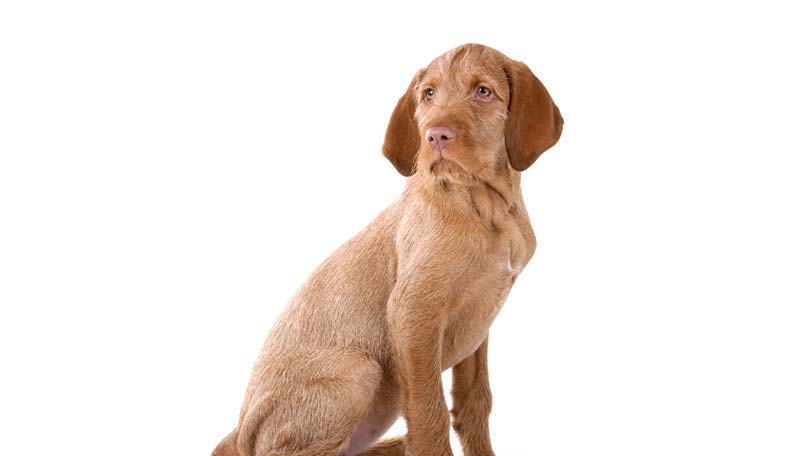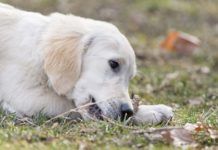
It’s really very comical to watch a dog scoot his rear end across the floor. It can be so endearing that many people forget that dogs do this because their anal scent glands are causing them significant irritation. Some irritation is minor and can be handled at home with relative ease while some irritation is severe and can be a sign of infection.
Anal scent glands are two glands that mirror each other just along the anus, located smack in between the internal sphincter muscles and the external sphincter muscles. All carnivora, with the exception of bears, are equipped with these glands. Their main job is to release a personal and identifying scent, thus offering a simple explanation why dogs insist on sniffing each other’s rear ends upon meeting. It’s the same as a hand shake for them, only the smell is permanently imprinted in their minds. It is also the reason why dogs have an insatiable need to kick up the dirt after going to the bathroom. They are not trying to bury their product, but spread it around to let the entire neighborhood know that not only were they there, but they marked this territory as part of their own. Don’t mess with it.
When a dog is stressed, physically or emotionally, their body’s natural reaction is to release a sudden and intense discharge from their anal glands. This goes back to their natural pack behavior once again. If they have to fight, or are injured, they need to let the rest of the pack know who it is.
Dogs don’t study facial features and hairline patterns to discern one dog from another. A pack of German Shepherds isn’t able to look at one another, realize that Fido has a missing trademark mole and Jules is the one with the extra white hairs down his back. Their scent is their identity. Before a fight, the sudden release from the anal glands seems like it alters the dog’s aroma. In reality, it makes the aroma much more pungent. Having to duke it out a second time because the other dog forgot that he was already beaten would jeopardize the pack’s overall health.
Alternatively, the dog who is injured needs to let out a signal, identifying themselves as the current weakest member. Thus, if the pack is attacked, an intruder can then discern the weak one. This self sacrificing behavior is for the endurance of the entire pack rather than the safety of just one member.
In most cases, these glands are self contained, unnoticeable and unremarkable in almost every way. They are just part of the dog’s systems and they generally can take care of themselves. When the dog goes to the bathroom (hopefully outside by now) the anal glands empty. This is both a cleansing process for the dog and the equipment for territory marking. Sometime, however, the naturally process of emptying the anal glands becomes interrupted.
Infection is the most common cause of anal scent gland dysfunction. Something as simple as an itchy butt can lead to the dog dragging his bottom across a rough surface, which can of course pierce the skin. Bacteria is more than happy to invade the particular location of the minor cut, and before you know it your dog has an anal sac filled with a very foul smelling fluid to contend with. This is usually very obvious as the gland will swell, and often the initial location of the cut will offer some mild oozing to reveal the damage and the entry for the bacteria. Sometimes, an infection sets in from an internal location. Either way, the tell tale swelling and the obvious irritation is usually a sign that the anal glands need to be drained.
Draining the Anal Glands is not a Pleasant Job
First of all, the human involved needs to be sure they know what they are doing and at the same time, they need to put aside their personal feelings about touching their pet’s rear end. While it may not be a suitable job for the weak stomach, anal glands are not that hard to drain.
The anal scent glands can be drained by simply squeezing firmly but gently the entire gland, much in the same fashion one would pop a pimple. Oozing of the contents will have a strong and foul aroma, but without this process, the infection or uninfected discomfort will grow worse. Using a chamomile tea bag soaked in very warm water can help draw some of the liquid to the surface to make the draining process easier. Simply place the tea bag on the dog’s anus for about ten minutes before squeezing. Don’t let him lick, which is much easier said than done.
For those who are not so comfortable draining their dog’s anal glands, either their groomer or the veterinarian can handle the job. There isn’t a need for someone else to take over the job, but if it makes you more comfy than by all means. After all, this is one of the more unpleasant aspects of dog ownership.
If you are going to allow someone else to drain the glands, make sure you are present and paying attention, just in case there is ever a time when you have little to no choice but to drain the glands yourself or watch your dog wriggle around in complete discomfort. After draining the anal scent glands, any infection should be treated with an antibiotic right away. While perhaps not the most pleasant aspect of caring for your best friend, he truly appreciates your efforts to help keep him comfortable, not to mention permit him to maintain his standing in the neighborhood. After all, he wouldn’t his puppy pals to think he had disappeared when they couldn’t locate his scent at his usual spot.





